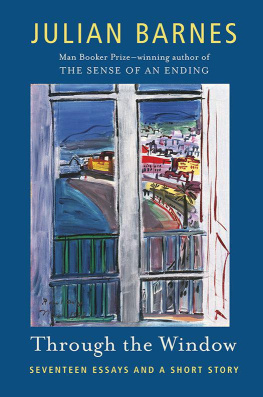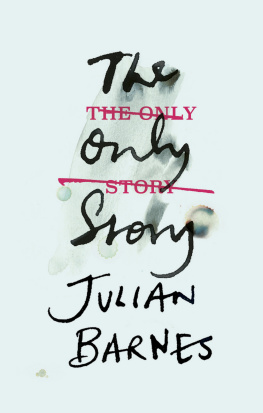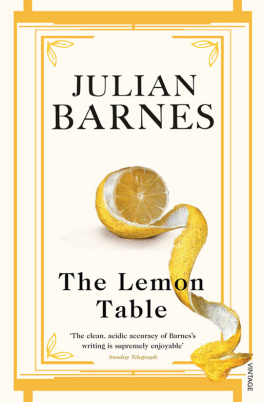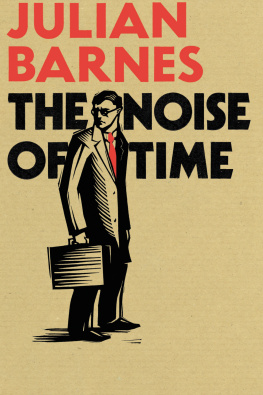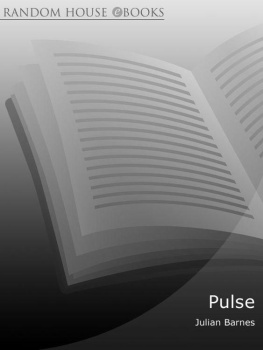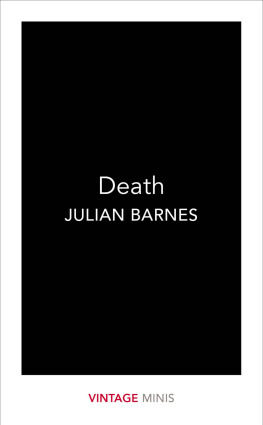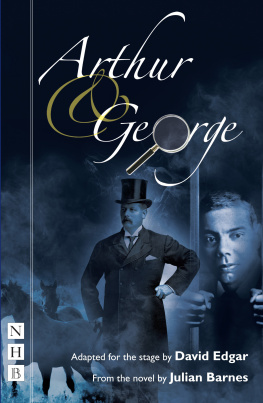Julian Barnes - The Sense of an Ending
Here you can read online Julian Barnes - The Sense of an Ending full text of the book (entire story) in english for free. Download pdf and epub, get meaning, cover and reviews about this ebook. year: 2011, publisher: Knopf, genre: Art. Description of the work, (preface) as well as reviews are available. Best literature library LitArk.com created for fans of good reading and offers a wide selection of genres:
Romance novel
Science fiction
Adventure
Detective
Science
History
Home and family
Prose
Art
Politics
Computer
Non-fiction
Religion
Business
Children
Humor
Choose a favorite category and find really read worthwhile books. Enjoy immersion in the world of imagination, feel the emotions of the characters or learn something new for yourself, make an fascinating discovery.

- Book:The Sense of an Ending
- Author:
- Publisher:Knopf
- Genre:
- Year:2011
- Rating:3 / 5
- Favourites:Add to favourites
- Your mark:
- 60
- 1
- 2
- 3
- 4
- 5
The Sense of an Ending: summary, description and annotation
We offer to read an annotation, description, summary or preface (depends on what the author of the book "The Sense of an Ending" wrote himself). If you haven't found the necessary information about the book — write in the comments, we will try to find it.
The Sense of an Ending — read online for free the complete book (whole text) full work
Below is the text of the book, divided by pages. System saving the place of the last page read, allows you to conveniently read the book "The Sense of an Ending" online for free, without having to search again every time where you left off. Put a bookmark, and you can go to the page where you finished reading at any time.
Font size:
Interval:
Bookmark:
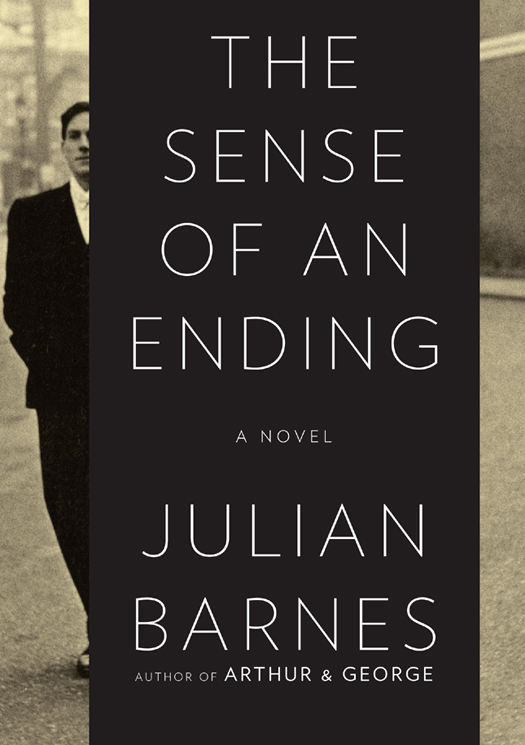
Also by Julian Barnes
FICTION
Metroland
Before She Met Me
Flauberts Parrot
Staring at the Sun
A History of the World in 10 Chapters
Talking It Over
The Porcupine
Cross Channel
England, England
Love, Etc.
The Lemon Table
Arthur & George
Pulse
NONFICTION
Nothing to Be Frightened Of
Letters from London, 19901995
Something to Declare
The Pedant in the Kitchen
TRANSLATION
In the Land of Pain
by Alphonse Daudet
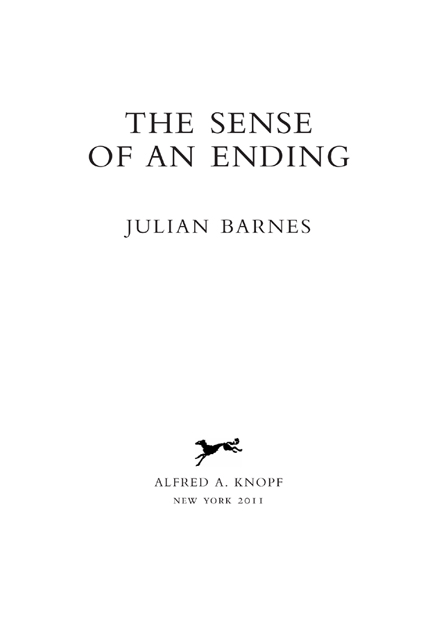
THIS IS A BORZOI BOOK
PUBLISHED BY ALFRED A. KNOPF
Copyright 2011 by Julian Barnes
All rights reserved.
Published in the United States by Alfred A. Knopf,
a division of Random House, Inc., New York.
www.aaknopf.com
Originally published in Great Britain by Jonathan Cape,
an imprint of The Random House Group Limited, London, in 2011.
Knopf, Borzoi Books, and the colophon are
registered trademarks of Random House, Inc.
Library of Congress Cataloging-in-Publication Data
Barnes, Julian.
The sense of an ending / Julian Barnes.1st American ed.
p.cm.
This is a Borzoi book.
eISBN: 978-0-307-95733-7
1. Middle-aged menFiction. 2. Life change eventsFiction.
3. Male friendshipFiction. 4. Psychological fiction.I. Title.
PR6052.A6657S46 2012
823.914dc23
2011025433
This is a work of fiction. Names, characters, places, and incidents
either are the product of the authors imagination or are
used fictitiously. Any resemblance to actual persons,
living or dead, events, or locales is entirely coincidental.
Jacket image by Roger Mayne/Mary Evans Picture Library
Jacket design by Carol Devine Carson
v3.1
For Pat
I remember, in no particular order:
a shiny inner wrist;
steam rising from a wet sink as a hot frying pan is laughingly tossed into it;
gouts of sperm circling a plughole, before being sluiced down the full length of a tall house;
a river rushing nonsensically upstream, its wave and wash lit by half a dozen chasing torchbeams;
another river, broad and grey, the direction of its flow disguised by a stiff wind exciting the surface;
bathwater long gone cold behind a locked door.
This last isnt something I actually saw, but what you end up remembering isnt always the same as what you have witnessed.
We live in timeit holds us and moulds usbut Ive never felt I understood it very well. And Im not referring to theories about how it bends and doubles back, or may exist elsewhere in parallel versions. No, I mean ordinary, everyday time, which clocks and watches assure us passes regularly: tick-tock, click-clock. Is there anything more plausible than a second hand? And yet it takes only the smallest pleasure or pain to teach us times malleability. Some emotions speed it up, others slow it down; occasionally, it seems to go missinguntil the eventual point when it really does go missing, never to return.
Im not very interested in my schooldays, and dont feel any nostalgia for them. But school is where it all began, so I need to return briefly to a few incidents that have grown into anecdotes, to some approximate memories which time has deformed into certainty. If I cant be sure of the actual events any more, I can at least be true to the impressions those facts left. Thats the best I can manage.
There were three of us, and he now made the fourth. We hadnt expected to add to our tight number: cliques and pairings had happened long before, and we were already beginning to imagine our escape from school into life. His name was Adrian Finn, a tall, shy boy who initially kept his eyes down and his mind to himself. For the first day or two, we took little notice of him: at our school there was no welcoming ceremony, let alone its opposite, the punitive induction. We just registered his presence and waited.
The masters were more interested in him than we were. They had to work out his intelligence and sense of discipline, calculate how well hed previously been taught, and if he might prove scholarship material. On the third morning of that autumn term, we had a history class with Old Joe Hunt, wryly affable in his three-piece suit, a teacher whose system of control depended on maintaining sufficient but not excessive boredom.
Now, youll remember that I asked you to do some preliminary reading about the reign of Henry the Eighth. Colin, Alex and I squinted at one another, hoping that the question wouldnt be flicked, like an anglers fly, to land on one of our heads. Who might like to offer a characterisation of the age? He drew his own conclusion from our averted eyes. Well, Marshall, perhaps. How would you describe Henry the Eighths reign?
Our relief was greater than our curiosity, because Marshall was a cautious know-nothing who lacked the inventiveness of true ignorance. He searched for possible hidden complexities in the question before eventually locating a response.
There was unrest, sir.
An outbreak of barely controlled smirking; Hunt himself almost smiled.
Would you, perhaps, care to elaborate?
Marshall nodded slow assent, thought a little longer, and decided it was no time for caution. Id say there was great unrest, sir.
Finn, then. Are you up in this period?
The new boy was sitting a row ahead and to my left. He had shown no evident reaction to Marshalls idiocies.
Not really, sir, Im afraid. But there is one line of thought according to which all you can truly say of any historical eventeven the outbreak of the First World War, for exampleis that something happened.
Is there, indeed? Well, that would put me out of a job, wouldnt it? After some sycophantic laughter, Old Joe Hunt pardoned our holiday idleness and filled us in on the polygamous royal butcher.
At the next break, I sought out Finn. Im Tony Webster. He looked at me warily. Great line to Hunt. He seemed not to know what I was referring to. About something happening.
Oh. Yes. I was rather disappointed he didnt take it up.
That wasnt what he was supposed to say.
Another detail I remember: the three of us, as a symbol of our bond, used to wear our watches with the face on the inside of the wrist. It was an affectation, of course, but perhaps something more. It made time feel like a personal, even a secret, thing. We expected Adrian to note the gesture, and follow suit; but he didnt.
Later that dayor perhaps another daywe had a double English period with Phil Dixon, a young master just down from Cambridge. He liked to use contemporary texts, and would throw out sudden challenges. Birth, and Copulation, and Deaththats what T. S. Eliot says its all about. Any comments? He once compared a Shakespearean hero to Kirk Douglas in Spartacus. And I remember how, when we were discussing Ted Hughess poetry, he put his head at a donnish slant and murmured, Of course, were all wondering what will happen when he runs out of animals. Sometimes, he addressed us as Gentlemen. Naturally, we adored him.
That afternoon, he handed out a poem with no title, date or authors name, gave us ten minutes to study it, then asked for our responses.
Shall we start with you, Finn? Put simply, what would you say this poem is about?
Adrian looked up from his desk. Eros and Thanatos, sir.
Hmm. Go on.
Sex and death, Finn continued, as if it might not just be the thickies in the back row who didnt understand Greek. Or love and death, if you prefer. The erotic principle, in any case, coming into conflict with the death principle. And what ensues from that conflict. Sir.
Font size:
Interval:
Bookmark:
Similar books «The Sense of an Ending»
Look at similar books to The Sense of an Ending. We have selected literature similar in name and meaning in the hope of providing readers with more options to find new, interesting, not yet read works.
Discussion, reviews of the book The Sense of an Ending and just readers' own opinions. Leave your comments, write what you think about the work, its meaning or the main characters. Specify what exactly you liked and what you didn't like, and why you think so.

